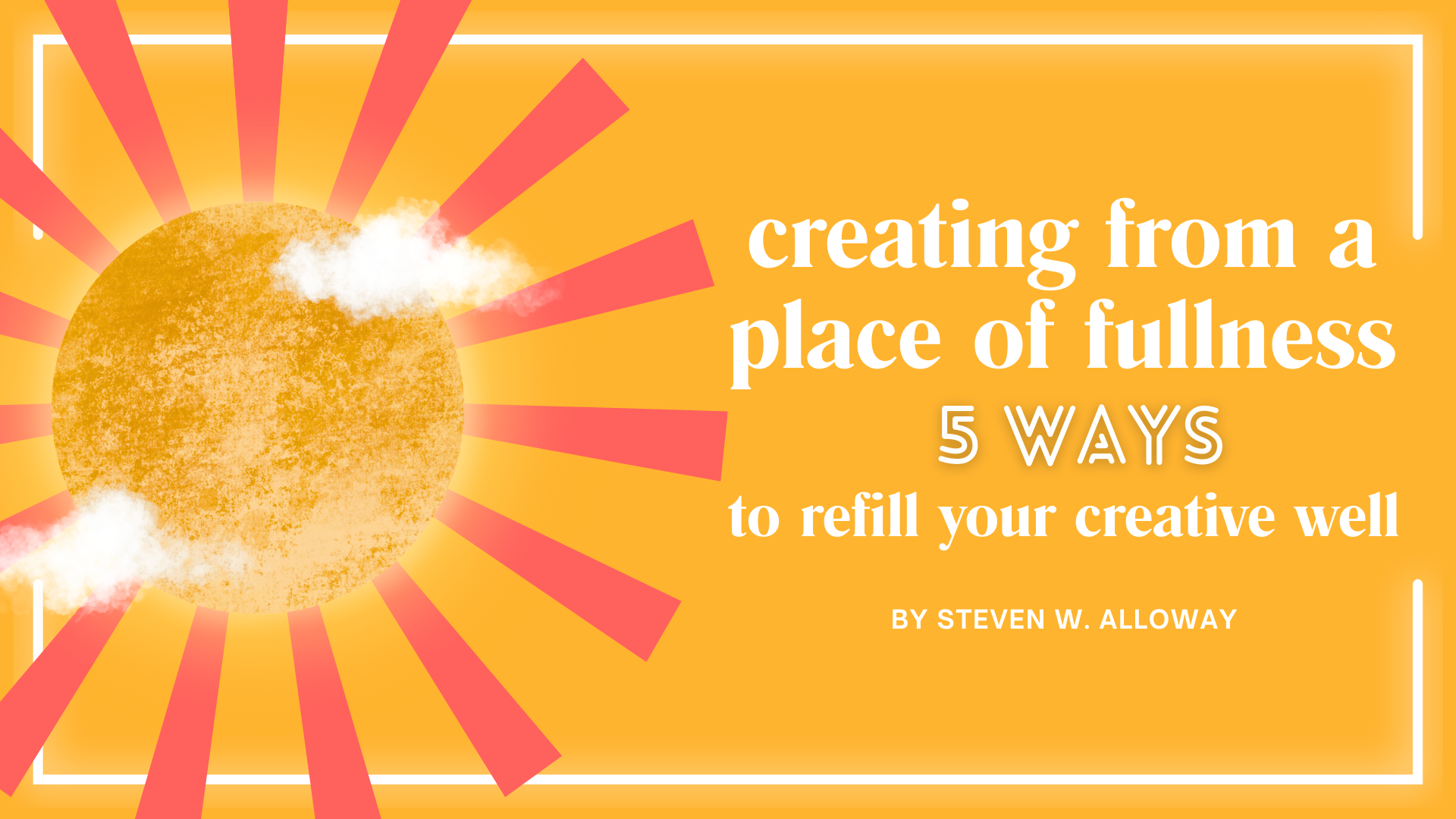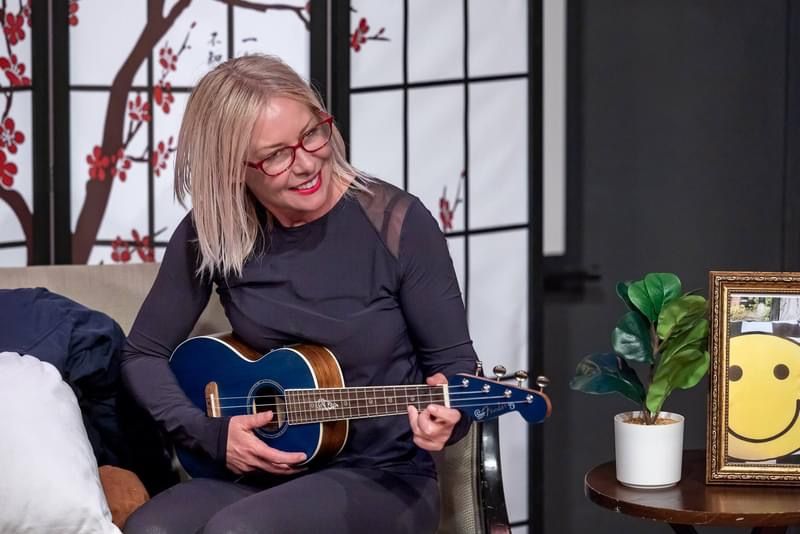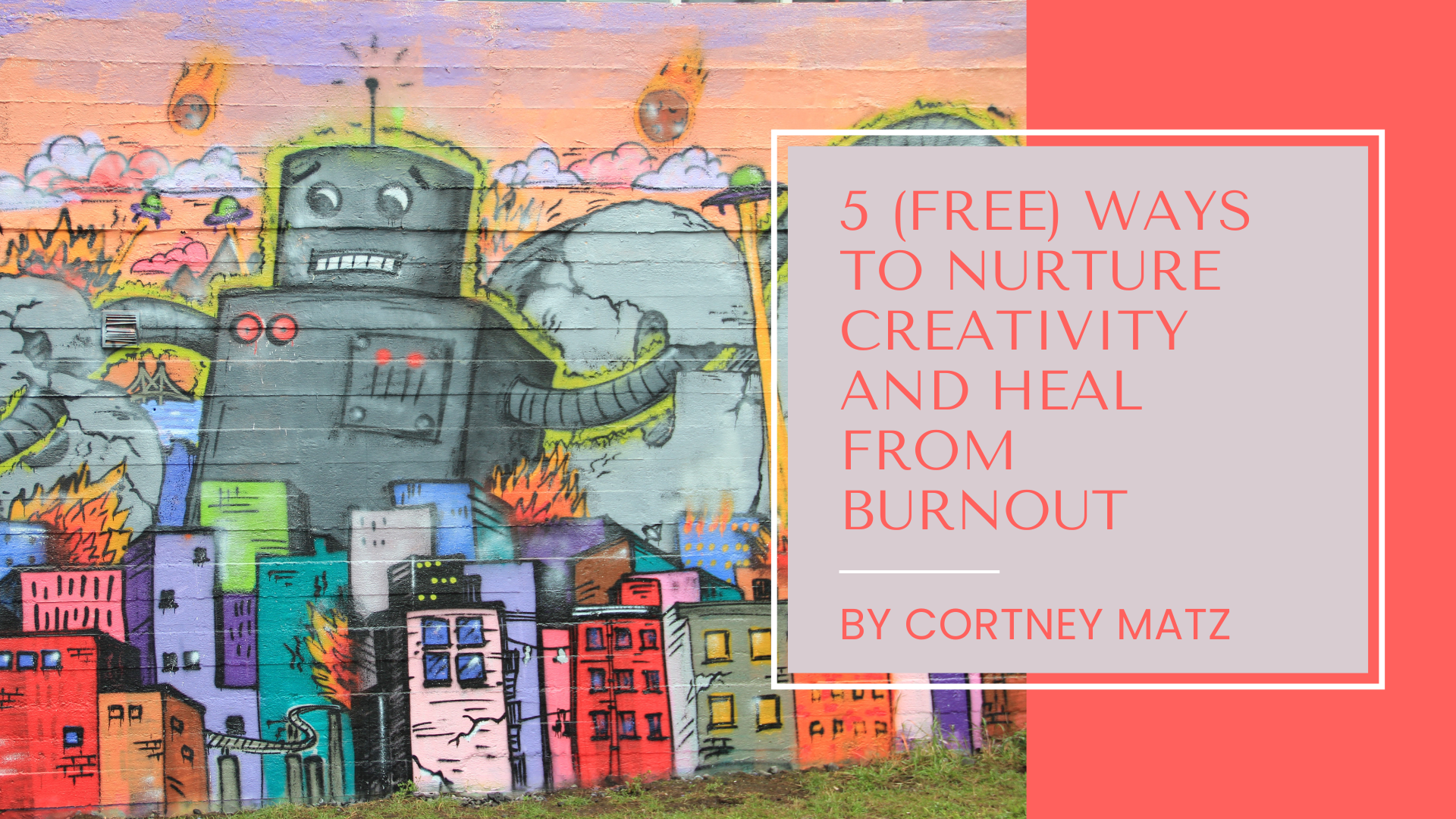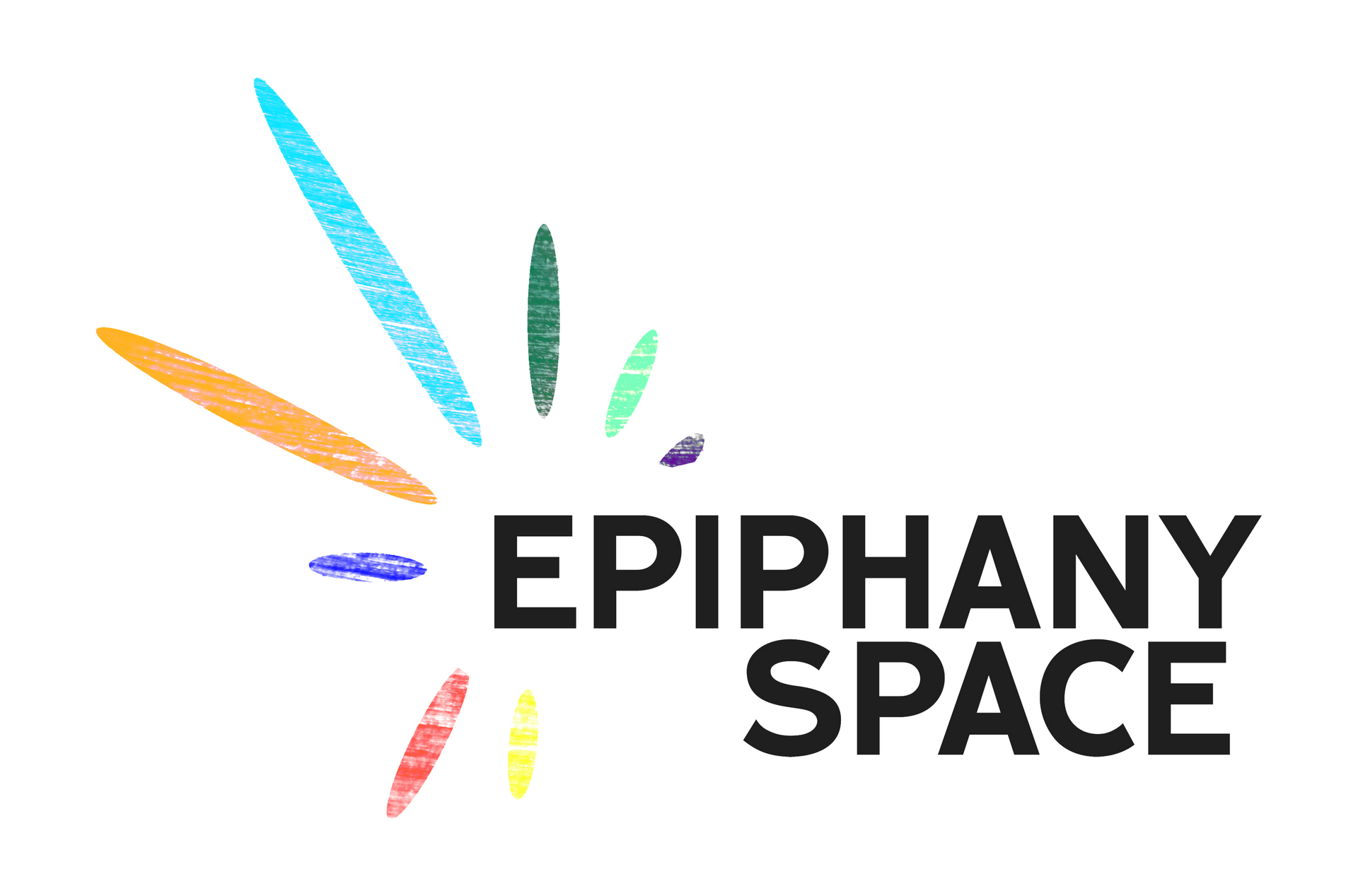Article
Erin Noëlle | Singer-Songwriter
Erin Noëlle | Singer-Songwriter
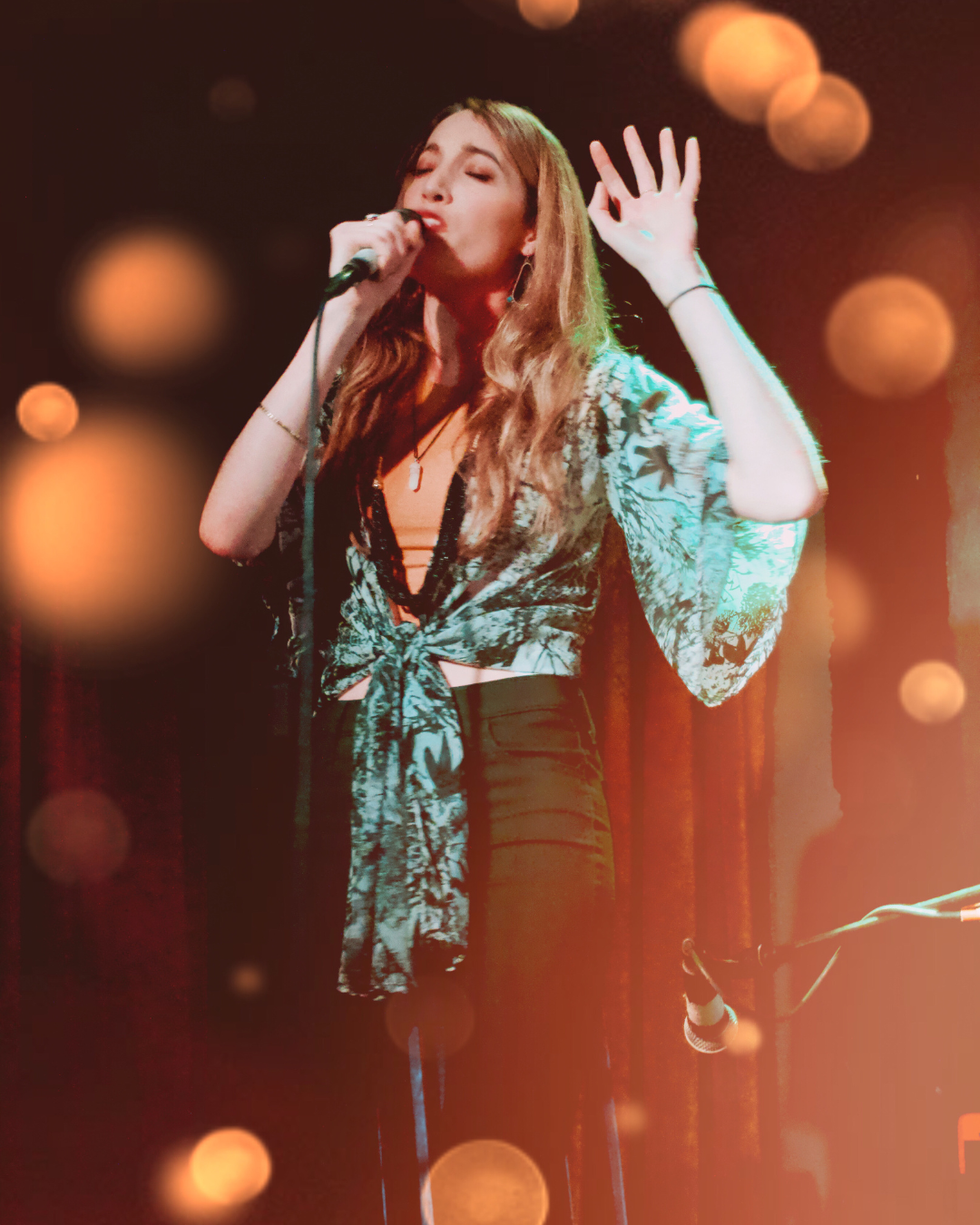
Tell us a bit about who you are and what you do, and how you first got involved in Epiphany Space.
By day, I am a program director at a non-profit that focuses on ear and hearing health. Funnily enough, this passion of mine intersects nicely with my love for music as a singer-songwriter. I stumbled upon Epiphany Space when looking for an open mic night in 2019. I was new to LA. I was deep in an online rabbit hole reading comments about different opportunities in town. Someone mentioned that their friend had just started a songwriter’s circle and listed the time and place. I had no idea what to expect, but I showed up to Epiphany Space and met Cortney Matz who led the songwriter’s circle. I had never shared any of my original songs in public before and ended up singing one of my songs to a small room for the first time.
You’re a talented singer and musician. How did you first get involved in music? When did you know it was what you wanted to do?
Like many people, I was in music lessons as a kid. This soon became overshadowed by other interests, like theater, and most of all, the demands of learning French and transitioning between school systems as my family moved. I returned to the States for college and joined an acappella group. The community and creative expression that sprang from that was a highlight of my 4 years.
It wasn’t until my mid-twenties that I had grown weary of the over-achieving, degree-obsessed culture in Boston. I was restless in my job, and a deep part of me was neglected and unfulfilled. I was unsure what was next. There was a moment when I reunited with a bunch of college friends who I had not seen for several years. The entire hang consisted of touting their latest degrees and connecting from a dry mental space with no genuine heartfelt resonance. I had embraced the richness of life over the last several years working in two non-profits around education equity, traveling, developing a love for hiking, and exploring the outdoors. I felt like we were on different planes of existence. It was at that point that I vowed to leave Boston. Around that time, I also found myself surrounded by a whole new group of friends who attended Berklee College of Music. I was the “non-musician” friend who somehow “got it” and was “different”. Looking back, and after having cried my way through the War of Art and the first several chapters of the Artist’s Way, I now know that I was what you call a “shadow” artist. I was engaged in a lot of creative dabbling but never dared reveal it to anyone and was crippled by self-doubt.
It wasn’t until I moved to Los Angeles to try to integrate my various interests that I started writing songs in earnest. They came to me. Sometimes at inopportune moments. It was a very natural (and healing) response to the turbulence of moving to a new city, going through what I called a quarter-life crisis, seeking a new career path, experiencing a gutting breakup, and so much more. Songwriting was a gift to process my emotions and make something beautiful out of the mess of it all. Just as I had been in Boston, in LA I was at gigs several times a week and immersed in the local music scene—without playing in it. I was around such amazing talent and would never have considered myself deserving of singing solo in public let alone being listened to by a room full of people! But then, about a year in, a professional guitarist friend of mine coaxed out one of my songs (which I sang a cappella). His response was to tell me I should go out and play. To sweeten the suggestion, he offered to accompany me, which blew my mind. That changed everything. It flipped a switch in my brain and set the course for where I find myself now.
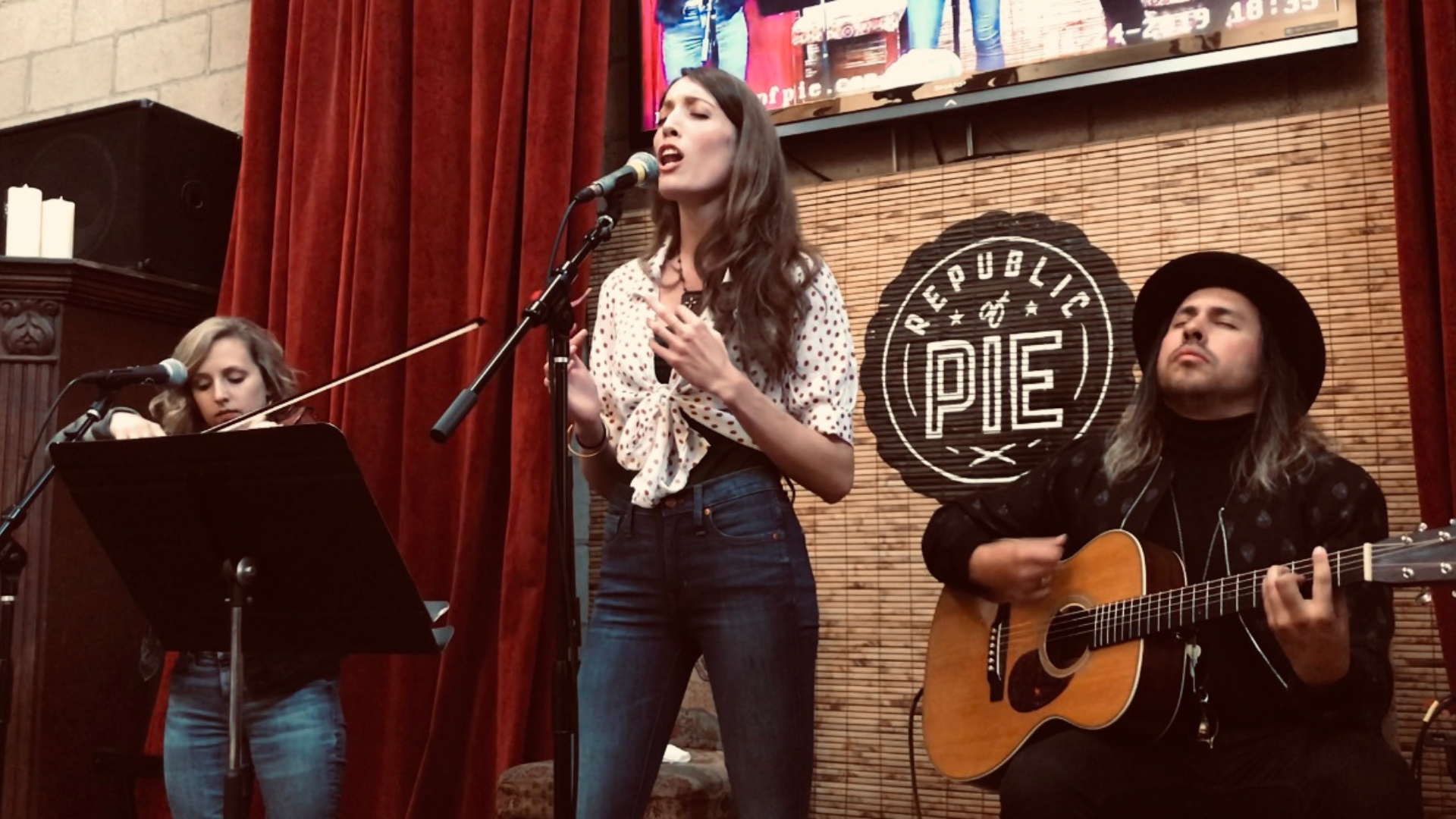
Who are some of the musicians who have inspired you along your journey? And what songs do you think have helped to shape your own musical style?
I was immersed in musical theatre early in life. Being around that crowd, and the bright, belting vocals that are not only expected but glorified, often left me frustrated with my voice. There were times that I felt like it was trapped inside of me as a floaty head voice. It’s when I started listening to female singers with a darker, unique, more soulful, even velvety tone, like Amy Winehouse, and Lianne La Havas, that I had a new point of reference. Their songs felt good to sing and opened a whole other world of texture and style that I could aspire to. I started to reclaim my voice instead of constantly fighting with it. Bands such as Florence and the Machine and Joseph have left a lasting imprint on my songwriting journey, with songs like Cosmic Love and Cloudline. Yet, it was the local Boston music scene, with its array of approachable, authentic artists at a critical time in my own development that truly left an indelible mark on me.
What are some of your favorite songs that you’ve written? Anything that’s particularly meaningful?
Creative Baby is about healing the inner child. It sort of encapsulates everything I was just talking about, and I hope it will help others along their creative awakening journeys, too, once I release it. Another song I wrote, Desert Rose, sounds like a vengeful break-up song on the surface, but underneath it, the reference to “burn” and “fire” are simultaneously about the fire of purification and transmutation as you rise into your greater purpose and power out of blinding suffering. It’s much more metaphysical if you want it to be. I love it when songs stay relatable after several years or take on new meanings that surprise me, even as the songwriter! That’s when you know that you are writing from a part of yourself that is timeless and mystically aware of the bigger context. Those are my favorites.
What have you got coming up? What are you excited about right now?
I look forward to when I will finally release my first EP! The songs are fully mocked up and some are recorded, but there is a lot more recording and tons of background vocals to add. I am edging closer and flowing with the process. Sometimes it gets arduous, of course. But I find that when I can stay amazed and grateful that all of this is unfolding when 5 years ago, I’d never have dreamed this would be possible, I return to the joy of it. That is when the effortless opportunities land and alignment happens.
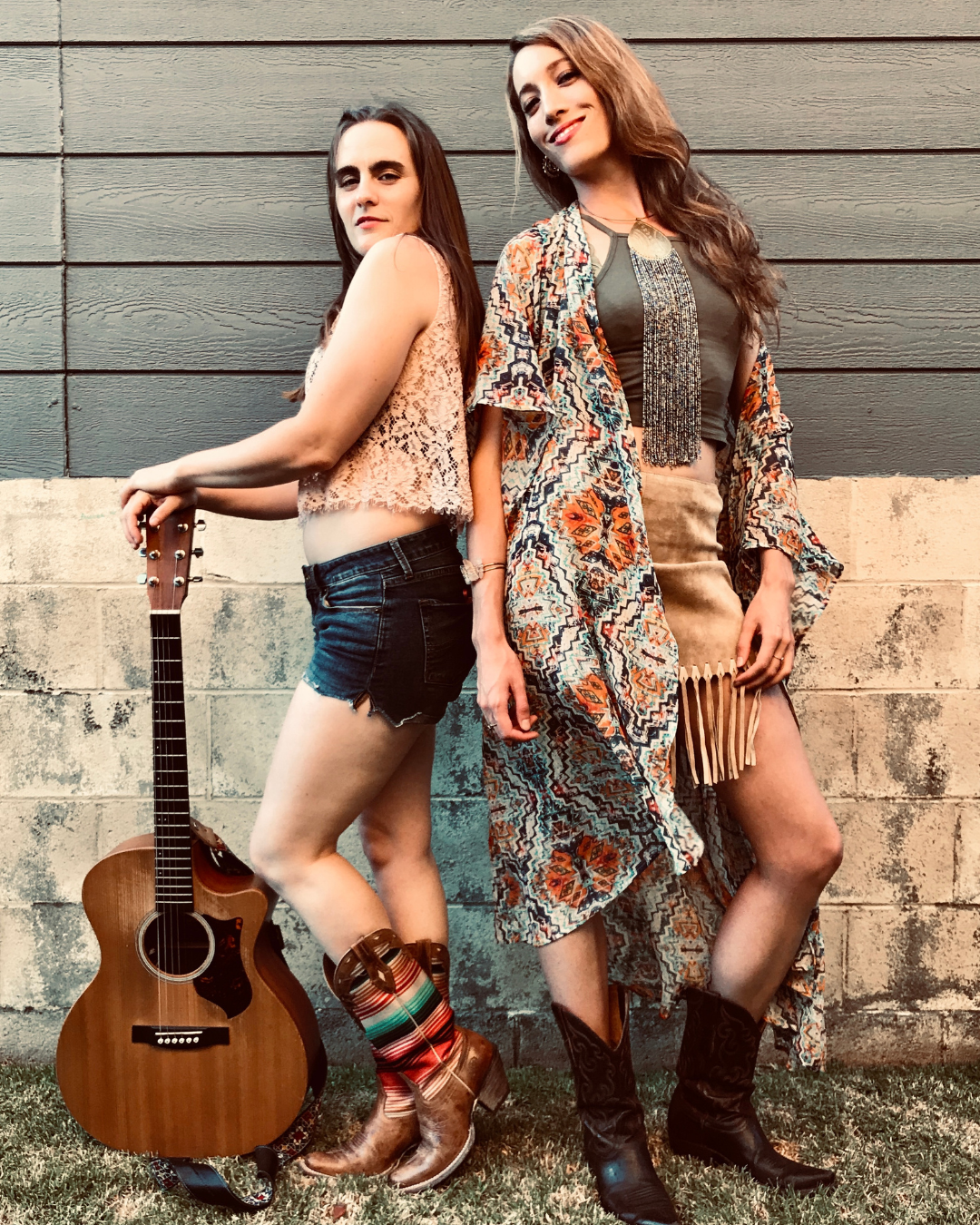
And finally, what advice would you give to anyone looking to pursue a career in music?
I don’t think it is my place to make suggestions about a music career in general, since I work full-time in a non-profit focused on hearing health! I am still humbly figuring this all out, too. However, for aspiring singer-songwriters (and I very much consider myself to be in this category), I think finding the right producer is key. Working with someone who is “greener” can be alluring. It may seem less intimidating, more forgiving, more approachable, more affordable. But it is also a huge risk. There have been many times when I have been completely mesmerized by a killer live performance, only to return home excited to jam out to the recorded versions of those same songs and feel they fell flat. It’s a disappointment to would-be fans and a lost opportunity for lasting impact. Find someone who can take what you do live, capture the essence of it, and make it even better! If the energy and quality of your live performances outshine your recordings, this may be a sign that the recording is subpar. It is going to be harder to get on playlists that could boost your visibility, and if you want to pursue sync licensing, that may be more challenging, too.
LA is full of a ton of self-proclaimed producers who can make or break your recorded songs. Quality recordings are your best bet for expanding your audience beyond the local scene, so my advice is don’t skimp on this. Look for a producer who likes your music and is excited to make it the best version of itself. Then ensure this person has the skills to actually do this. Try not to be fooled by a flashy studio. This often doesn’t correlate to skill. There are hidden gems of producers out there who may primarily market themselves as something else—like composers or sound engineers even! They may have a humble home recording space but know how to use their equipment and software seamlessly, have freakish musicianship, can arrange, efficiently program quality demos, write out notation for your players so outcomes are not left to chance, are multi-instrumental, and have extensive knowledge of different musical styles that they draw from and weave into your sound in incredible ways that will differentiate your style. In a way, the culmination of all these other skills is what can make a “producer” truly excellent. They may not have a ton of credits to their name, so don’t be fooled by this either. Hold this vision for yourself! If this means taking more time to vet and select someone and then saving up to pay them their rate, I encourage you to exercise that patience and discipline. And remember, no matter how good the producer is, their ability to deliver can be constrained by a tight budget, too. For example, if you are going for a lush sound, samples may not be a convincing replacement for live instruments, especially strings. In this case, you need to be ready to hire really good players.
Perfection may be the enemy of good. In my opinion, so is the desire of many singer-songwriters to cut corners in the haste to release and/or save money. Your recorded music is, in a way, the “finished” version of a piece of art. If you believe your song is worth recording in the first place, and since it is going to represent you as an artist, treat it like it deserves the best. Investing in it is akin to investing in yourself and your future as a singer-songwriter.
share this
Related Articles
Related Articles
